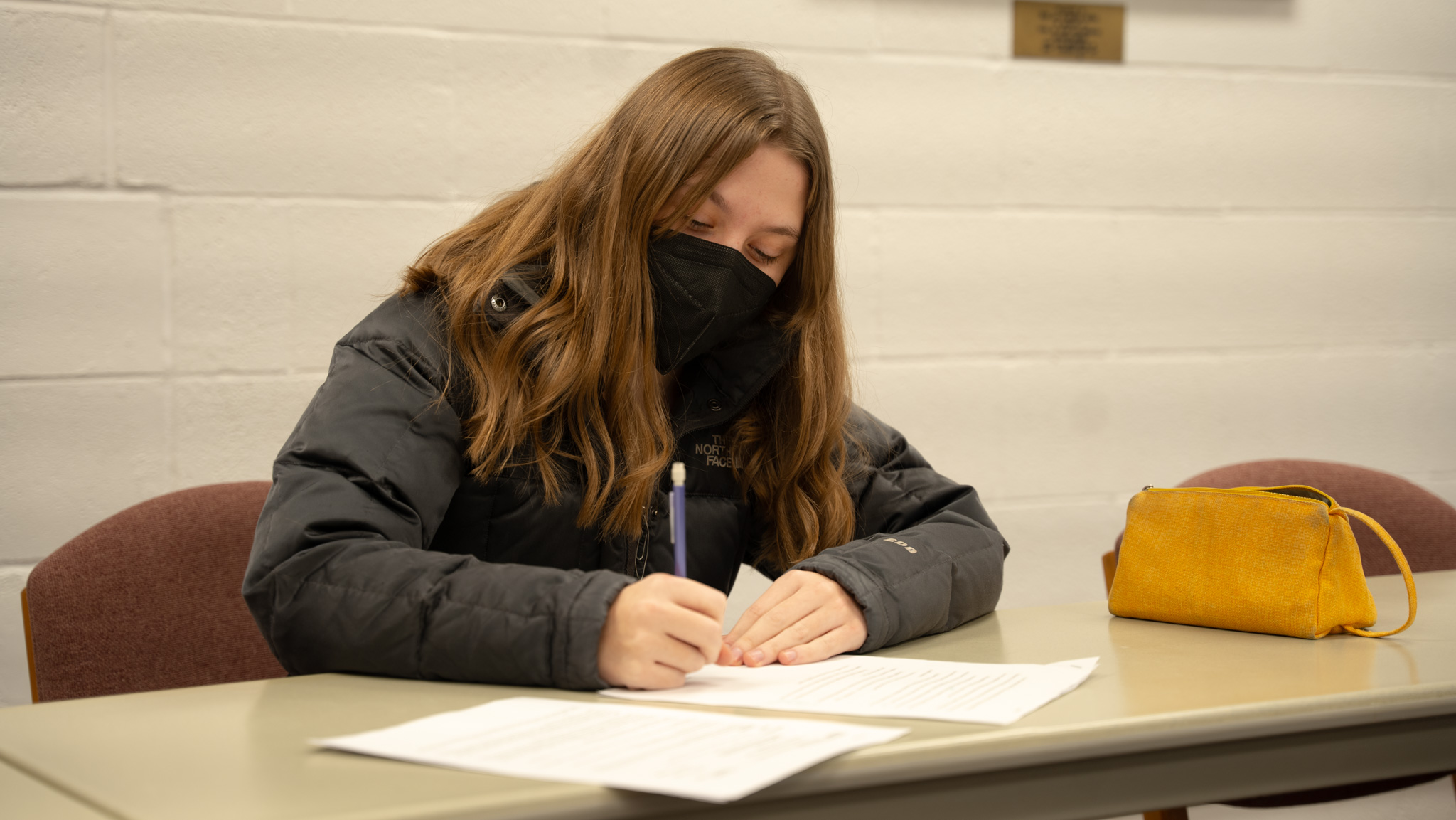College students are no strangers to illness, and this winter is no exception, with reported instances of COVID-19, Influenza, RSV and cold symptoms, many missed classes and even rescheduled events.
This was the case for both Fatima Rhana, senior music and theater major, and Victor Vegas, senior music major, who were forced to reschedule their senior recitals. These recitals are a requirement of the music major, and thus essential to complete. Rhana said that it was a hard decision to reschedule, but a necessary one that the department was very understanding of.“The department was so fast and super understanding. Everyone was insanely worried about me, sending me so much love all throughout the days. They are very committed to their work and the students,” Rhana said.
The spring musical, “Rent,” also had to cancel a rehearsal, which Rhana described as “a strange occurrence. We almost never cancel rehearsal.” She went on to say, “it just seemed ridiculous to try and learn choreography while all of us were sick.”
This uptick in illness has also affected the local community, as an elementary school in South Bend was forced to close due to winter illness last week.
At GC, Kortney Stern, visiting assistant professor of English, said she has observed that “about one third of students from each of my four courses were out with illness. Many had documentation, and all seemed to have some kind of serious flu but not COVID-19.”
Though the college has no official guidelines for professors concerning online learning as a response to outbreaks of illness, Stern said that “If more and more students are becoming ill, especially if things are stretching from one week to two, I am more open to the idea of moving a class or two temporarily online so more can participate.”
Last week she moved two of her courses to Zoom for one class period, as she felt that “it no longer seemed safe for the health of our classroom community to meet in person.” She reported that only one student was not able to attend online, as opposed to the many who had reported illness, and thus felt as though it was the right decision.
Patty Hartshorn, director of health and wellness, explained that much has changed in GC’s response to infectious disease since the “COVID era,” as the college no longer requires students to report any aspects of their personal illnesses. Students are also no longer required to quarantine or mask as a part of college policy; however, the office of health and wellness recommends that students follow the Centers for Disease Control and Prevention guidelines.
Hartshorn explained that the CDC recommends that “you’re encouraged to mask for five days” and to “keep yourself at a distance or rest at home, and if you are fever free for 24 hours or if your symptoms lessen, then you go back into public spaces.”
GC has a partnership with Goshen family physicians that students can utilize for healthcare if necessary, but Hartshorn also said that students should go wherever they are most comfortable to medical care — which could include the Center for Healing and Hope, or Maple City Healthcare center. “We really want to make sure that students are getting the support they need and that they feel comfortable receiving,” Hartshorn said.
Stern also spoke about the variety of factors beyond just the spread of germs that can lead to illness: “One can only keep burning the midnight oil and the candle at both ends before the body will force you to take a time out and rest.” Stress has a huge effect on the body, and college students are certainly not immune.
Hartshorn offered advice to students on how they can best keep themselves healthy in this season of sickness. “Practice good self care, get good rest, get your vitamins and minerals in your system, and keep your hands clean. It really sounds like simple advice but it’s amazing how effective it can be.”




